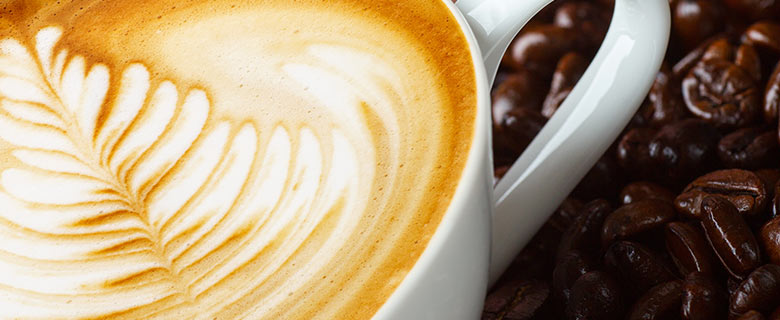Why are you less likely to spill a latte?

Why is it that a latte is less likely to gush over the sides of your cup than, say, a glass of water, a good cup of tea or even a traditional espresso or Americano?
Luckily, science has the answer.
A team of researchers made a number of observations about how certain drinks reacted whilst being transported. They then opted to conducted a few experiments in a controlled environment, constructing a purpose-built piece container which would allow them to test the damping power of foam.
This rectangular vessel of glass was filled with a liquid substance comprised of water, glycerol (a common substance that increases a liquid’s viscosity) and dishwasher detergent. Air was then added at a constant rate to create a small and uniform layer of solid and stable surface bubbles. Because of this relative solidity, the team could therefore conduct their experiments without running the risk of the bubbles popping and impacting their results.
The researchers then ran tests centred on two different and distinct movements. The liquid would either be subjected to a quick ‘jolt’ or a steadier, more relaxed ‘rock’ and the entire process was captured by a high-speed camera, which allowed these intrepid investigators to watch the events back in slow motion and record their results.
It was determined that just five layers of foam reduced the height of the subsequent waves – and therefore spillages – by a factor of ten and this was directly because of the presence of the thin layer of foam. The bubbles, they say, help dissipate the energy and forces caused by movement through friction.
The full report can be read in a recent issue of the journal Physics of Fluids.
Besides from determining why people are less likely to spill a latte than an Americano, the group’s research could also be used to help create safer environments for the transportation of hazardous liquids.
But where did the inspiration for this research come from?
“While I was studying for my Ph.D. in the south of France, we were in a pub, and we noticed that when we were carrying a pint of Guinness, which is a very foamy beer, the sloshing almost didn’t happen at all!” said Alban Sauret, who is now researcher at the French National Center for Scientific Research.
Students, always in the pub!
